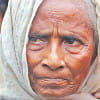Empathy is missing for survivors seeking justice

Today marks the International Day for the Elimination of Violence against Women, as well as the commencement of the 16 Days of Activism against Gender-Based Violence (GBV), which is an annual campaign to raise awareness on this issue around the world. It is an opportunity to reflect on the legislative and procedural challenges faced by survivors of sexual violence in Bangladesh. But it substantially fails to address the human elements involved. Survivors navigate a justice system riddled with structural barriers, trauma, and inadequate empathetic support. In a recent conversation with this author, Barrister Sara Hossain emphasised that the focus must shift from performative gestures to actionable reforms. Awareness campaigns, while valuable, cannot substitute for systemic change, which remains essential for addressing the root issues with GBV.
Bangladesh has enacted several laws to combat gender-based violence. But the gap between legal provisions and their implementation reflects deep-rooted institutional weaknesses and resource constraints. This is further crippled by societal stigma attached with crimes of sexual violence. The Domestic Violence (Prevention and Protection) Act, 2010, a landmark step focusing on preventing physical, emotional, sexual and financial abuse within the household, provides for protection orders, compensation and shelter for survivors. However, according to Rumana Hoque, member of the Bangladesh National Woman Lawyers' Association (BNWLA), not having financial independence is a major factor that prevents survivors from pursuing justice. Many of them are forced to rely on their natal families, who may themselves face financial limitations or social ostracisation in providing long-term support. This economic vulnerability frequently compels survivors to compromise their safety, return to abusive households, or risk homelessness. For many survivors of domestic violence, the immediate goal is not accountability for the perpetrator, but simply the cessation of violence and assurance of safety. This reflects the painful reality that pursuing legal action is a luxury many cannot afford due to the financial resources and emotional resilience required to sustain such efforts.
Access to shelters is another significant barrier. Statistically, Bangladesh has only around 36 shelters nationwide, of which 15 are NGO-operated. This number is grossly inadequate for a population that includes eight crore women. Moreover, the majority of shelters, being concentrated in urban areas, are inaccessible to women from rural communities. Admission processes are often complicated and cumbersome, requiring police referrals or court orders for entry into state-run facilities. This bureaucratic hurdle is particularly challenging for domestic violence survivors who may not have immediate access to law enforcement or legal personnel. As a result, many survivors are left without viable options for safety and support.
Sara Hossain states that the absence of victim and witness protection mechanisms aggravates the issues. In 2006, the Law Commission of Bangladesh submitted a report on a proposed law relating to the protection of victims and witnesses of crimes involving grave offences. In 2015, a High Court Division bench passed a directive for the enactment of a witness protection law. Then in August 2017, with the joint effort of the UNDP and the Supreme Court of Bangladesh, the Witness Management Policy for Subordinate Courts and Tribunals was drafted. Despite all these steps, no witness protection law or scheme has been enacted to this day.
Implementing the Victim and Witness Protection Act would resolve the safety issue significantly. Such comprehensive protection mechanisms would be a significant step towards ensuring that survivors can safely participate in legal proceedings without fear of retaliation. Unfortunately, this legislation has been a stalled prerogative for almost two decades. This legislation would ensure the safety and dignity of survivors and witnesses during legal proceedings, addressing the widespread issue of intimidation and reprisals by perpetrators. Interestingly, while the International Crimes Tribunal (ICT) rules include provisions for victim and witness protection, such safeguards are not extended to regular criminal cases, including those involving GBV. This omission leaves survivors vulnerable and undermines their confidence in the justice system.
Gaps in investigative procedures also compound the plight of survivors as they frequently encounter law enforcement officers and medical professionals who lack training in trauma-informed practices. Survivors are traumatised again during investigations, particularly in cases of sexual violence. Since 2012, the government's Multi-Sectoral Programme on Violence Against Women introduced One-Stop Crisis Centres (OCCs) and forensic DNA facilities, although they are insufficient in number and capacity. With only 13 OCCs available for eight crore women, survivors in rural and remote areas face significant challenges in accessing these critical services. Even in districts where OCCs exist, outreach efforts remain limited, leaving many survivors isolated and unsupported. These centres offer critical services including medical care, counselling and legal aid, but their number and capacity remain severely deficient. Even in districts where such centres exist, outreach efforts are insufficient.
In the past decade, judicial precedents have further exposed systemic failures in addressing GBV and emphasised the need for reforms. The Naripokkho vs Government of Bangladesh case in 2015 highlighted failures in the registration of first information reports (FIRs) for GBV cases, particularly rape. The court held that such failures violated survivors' fundamental rights under Articles 27, 28 and 31 of the constitution, which guarantee equality before the law, non-discrimination based on sex, and the right to protection under the law. The judgment emphasised that all cognisable offences must be promptly registered to ensure justice. Inefficiency of law enforcement officers to register the complaint of rape by a Garo woman delayed the investigation, compromising critical evidence, including the time-sensitive medical examination. The High Court intervened and directed the inspector general of police (IGP) to take disciplinary actions against the negligent officers. While these judgments were significant in addressing institutional failures, the lack of accountability and follow-through highlights ongoing systemic inertia and corruption, which continue to undermine the enforcement of these directives.
Unfortunately, these directives and activism become rhetorical exercises that fail to address the real, practical needs of survivors. The justice system itself remains alienating and hostile to survivors. The physical environments within courts and police stations further deter survivors from seeking justice. In many places, the women and children repression prevention tribunals lack basic amenities such as clean restrooms, waiting areas or spaces for children. This creates an unwelcome atmosphere that adds to the emotional toll that survivors already endure. Improving these spaces to make them more welcoming and accessible is a simple yet critical step towards ensuring easier navigation within the court houses. Basic interventions, such as improving signage, could significantly improve the survivors' experiences within the justice system.
Bangladesh can draw lessons from countries like South Africa, UK and the Philippines, which have successfully incorporated intermediaries such as paralegals and community workers to support GBV survivors and ease their access to justice. In South Africa, community advice offices serve as vital resources, particularly in rural areas, where paralegals provide survivors with legal advice, emotional support, and assistance in navigating the justice system. These intermediaries act as a bridge between survivors and formal institutions, ensuring that survivors are treated with empathy and care. Similarly, in the Philippines, Barangay VAW (violence against women) desks at the community level provide immediate assistance to survivors, including counselling, referrals and legal aid. These desks are staffed by trained officers who offer empathetic and survivor-centred support, fostering trust and encouraging survivors to seek justice without fear of alienation or insensitivity. These models highlight the importance of accessible and empathetic support systems in addressing GBV effectively. Steps may be taken to enshrine such initiatives within the Bangladeshi legal system.
The 16 Days of Activism serves as a reminder of the urgent need to address the systemic challenges faced by survivors of gender-based violence. These campaigns must focus on actionable reforms. Expanding the number and capacity of OCCs, implementing trauma-informed training for law enforcement, and enacting the long-delayed Victim and Witness Protection Act are crucial steps towards creating a survivor-centric justice system. By addressing these structural barriers, Bangladesh can move closer to a future where survivors are empowered to seek justice, rebuild their lives, and live free from violence and fear. Collective integration of legislative and empathetic reforms are the fundamental roadblocks to achieving this vision. It requires sustained commitment—the cost of inaction is far too great to ignore.
Barrister Noshin Nawal is a member of the editorial team at The Daily Star and an environmental activist.
Views expressed in this article are the author's own.
Follow The Daily Star Opinion on Facebook for the latest opinions, commentaries and analyses by experts and professionals. To contribute your article or letter to The Daily Star Opinion, see our guidelines for submission.

 For all latest news, follow The Daily Star's Google News channel.
For all latest news, follow The Daily Star's Google News channel. 










Comments